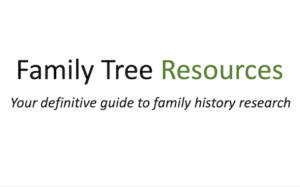Death Duty
Where a deceased person’s estate exceeded a certain value, Death Duties were applicable, and are the equivalent of today’s inheritance tax. Death Duty registers are held at the National Archives. When assessing tax on estates after 1796, the authorities used information gathered from administrations and wills to glean some idea of the value of the deceased’s estate.
Death Duty Registers contained the deceased’s name, executors, administrators and beneficiaries along with their relationship to the deceased and the property they received.
Letters of Administration were used when a person died without leaving a will and did not record names of the beneficiaries so the death duty register can take on even more importance.
The registers and indexes are held in Series IR26 and IR27 at The National Archives. IR26 contains the actual registers and IR27 the index to those registers. The information that can be found in the indexes and registers is as follows:
- The court the will was proved in
- The beneficiaries named in the will of the deceased
- Executors names, addresses and occupations
- How the estate was distributed among the beneficiaries
- The value of the estate
- The name, address and last occupation of the deceased
- Probate date
- Details of estates, legacies, trustees, legatees and annuities
- The duty paid
Information included in the registers could include:
- Spouse’s date of death
- Beneficiaries’ marriage or death date
- The births of posthumous children and grandchildren
- Any change of address
- Law suits
- Cross references to other entries
You are also able to view Country Court Death Duty Registers 1796-1811 on-line, but the National Archives does make a charge to view any documents.
Land Tax
Another method of taxation was the Land Tax, which was levied in England and Wales from 1692 to 1963, and calculated on land value. Owners and occupiers of property are listed in these records.
Land Tax records mostly survive from the period 1780 to 1832, and are held at most Record Offices. The National Archives holds an almost complete list of Land Tax Records for 1798.
